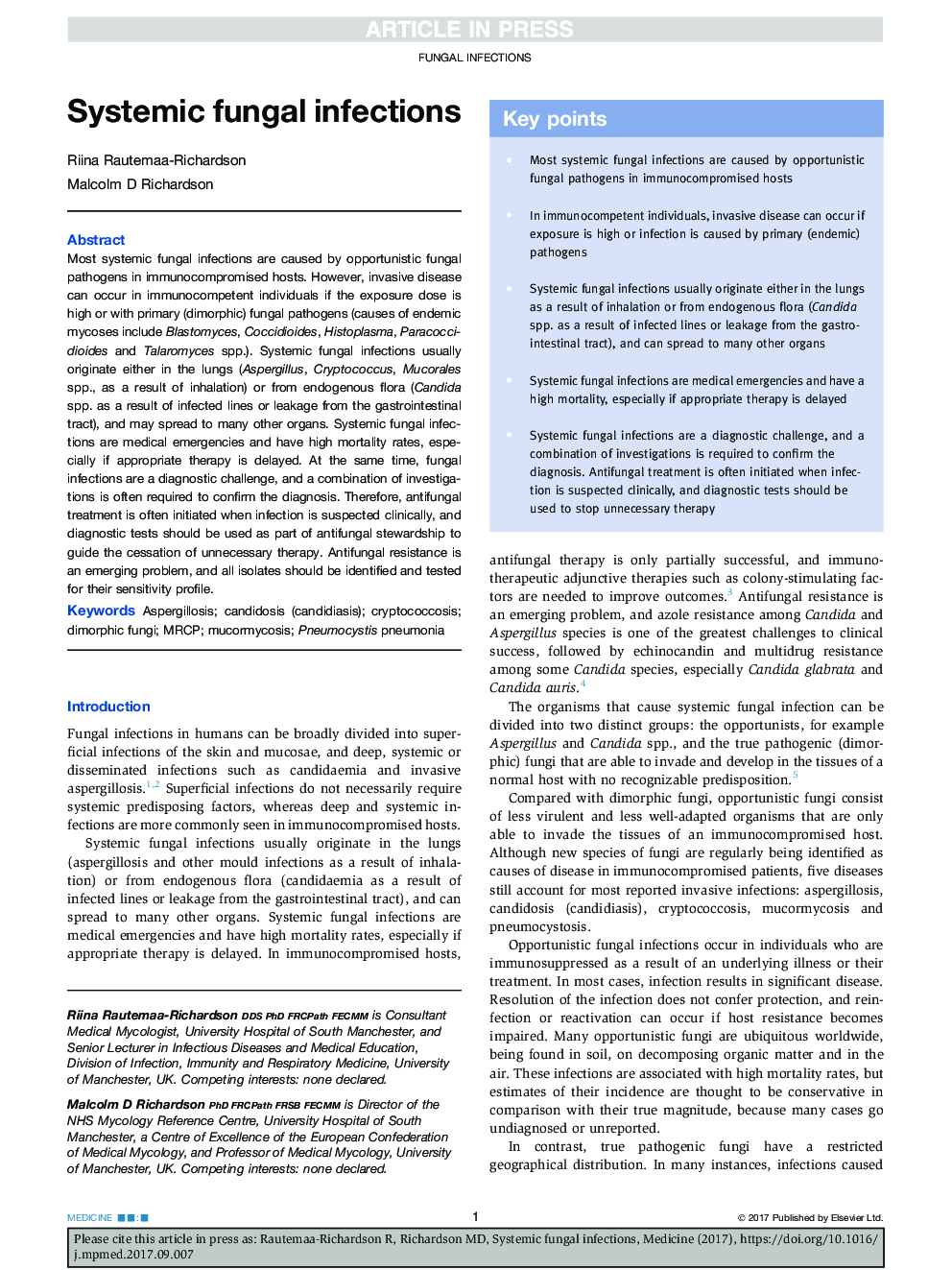| Article ID | Journal | Published Year | Pages | File Type |
|---|---|---|---|---|
| 8764136 | Medicine | 2017 | 6 Pages |
Abstract
Most systemic fungal infections are caused by opportunistic fungal pathogens in immunocompromised hosts. However, invasive disease can occur in immunocompetent individuals if the exposure dose is high or with primary (dimorphic) fungal pathogens (causes of endemic mycoses include Blastomyces, Coccidioides, Histoplasma, Paracoccidioides and Talaromyces spp.). Systemic fungal infections usually originate either in the lungs (Aspergillus, Cryptococcus, Mucorales spp., as a result of inhalation) or from endogenous flora (Candida spp. as a result of infected lines or leakage from the gastrointestinal tract), and may spread to many other organs. Systemic fungal infections are medical emergencies and have high mortality rates, especially if appropriate therapy is delayed. At the same time, fungal infections are a diagnostic challenge, and a combination of investigations is often required to confirm the diagnosis. Therefore, antifungal treatment is often initiated when infection is suspected clinically, and diagnostic tests should be used as part of antifungal stewardship to guide the cessation of unnecessary therapy. Antifungal resistance is an emerging problem, and all isolates should be identified and tested for their sensitivity profile.
Related Topics
Health Sciences
Medicine and Dentistry
Medicine and Dentistry (General)
Authors
Riina Rautemaa-Richardson, Malcolm D. Richardson,
